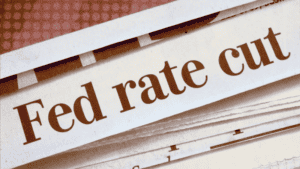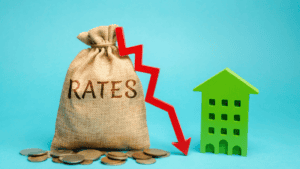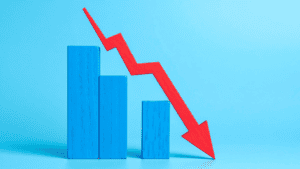Credit scores directly impact home equity loan interest rates. Borrowers with 740+ scores often qualify for the best rates, around 7.65%–8.23%. Scores between 680–739 may see slightly higher rates, while 620–679 typically face the steepest premiums.
Most lenders require a minimum score of 620, though HomeEQ’s digital platform may approve qualified borrowers in the upper 600s with competitive pricing.
Credit score ranges and rate impact
The credit score home equity loan interest rate relationship follows predictable patterns based on risk assessment. Excellent credit scores (740+) typically qualify for the most competitive rates, while good credit (680-739) receives modest premiums, and fair credit (620-679) faces higher pricing reflecting increased lender risk.
Current market data shows credit score home equity loan interest rate spreads of 1-3 percentage points between credit tiers. Borrowers with 740+ scores might qualify for rates around 7.65%, while those with 620-679 scores could see rates approaching 10-11%, representing substantial differences in monthly payments and total interest costs.
| Credit Score Range | Typical Rate Range | Monthly Payment ($50K/15yr) | Total Interest |
|---|---|---|---|
| 740+ | 7.65-8.50% | $465-$481 | $33,700-$36,580 |
| 680-739 | 8.50-9.50% | $481-$522 | $36,580-$43,960 |
| 620-679 | 9.50-11.00% | $522-$568 | $43,960-$52,240 |
These credit score home equity loan interest rate differences compound over time, with excellent credit borrowers potentially saving $8,000-$18,000 over 15 years compared to fair credit borrowers on a $50,000 loan.
How lenders evaluate credit scores
Lenders assess credit score home equity loan interest rate risk through comprehensive credit analysis beyond just the numerical score. Payment history represents the most critical factor, accounting for 35% of your score, while credit utilization, length of credit history, and account mix also influence rate decisions.
The credit score home equity loan interest rate evaluation process considers both FICO and VantageScore models, though most lenders prefer FICO scores for mortgage-related products. Recent credit inquiries, account management patterns, and debt-to-income ratios supplement credit score analysis in rate determination.
Automated underwriting systems calculate credit score home equity loan interest rate offers using algorithms that weigh multiple risk factors. However, manual underwriting may provide more favorable consideration for borrowers with strong compensating factors despite lower scores.
Minimum credit score requirements
Most lenders establish credit score home equity loan interest rate thresholds around 620 for minimum qualification, though some require 660-680 for their best programs..
Premium credit score home equity loan interest rate offers typically require scores above 740, with the most competitive rates reserved for 760+ borrowers. Rocket Mortgage, for example, accepts applications from borrowers with 680+ scores but requires 760+ scores for maximum loan-to-value lending up to 90%.
Digital lenders often provide more flexible credit score home equity loan interest rate qualification compared to traditional banks. HomeEQ’s automated underwriting may approve borrowers with scores in the upper 600s while offering competitive rates through streamlined operations and reduced overhead costs.
Improving your credit score before applying
Strategic credit score home equity loan interest rate optimization can save thousands in borrowing costs. Even modest score improvements of 20-40 points can move borrowers into better rate tiers, making pre-application credit work highly valuable.
Effective strategies for improving credit score home equity loan interest rate qualification include paying down credit card balances below 30% utilization, avoiding new credit applications during the 3-6 months before applying, and ensuring all payments remain current across all accounts.
Credit report errors significantly impact credit score home equity loan interest rate offers. Borrowers should obtain free credit reports from all three bureaus, dispute any inaccuracies, and allow 30-60 days for corrections before applying for home equity loans.
Other factors affecting rate offers
While credit scores heavily influence credit score home equity loan interest rate decisions, lenders consider multiple factors in final pricing. Loan-to-value ratios, debt-to-income ratios, employment stability, and property characteristics all affect rate offers beyond credit score considerations.
Debt-to-income ratios significantly impact credit score home equity loan interest rate qualification, with most lenders preferring DTI ratios below 43%. Borrowers with excellent credit but high DTI may receive less favorable rates than those with slightly lower credit scores but stronger income positions.
Employment history and income stability influence credit score home equity loan interest rate decisions, particularly for self-employed borrowers or those with variable income. Consistent employment and documentation can help offset slightly lower credit scores in lender evaluation processes.
Comparing offers across credit tiers
Shopping multiple lenders remains crucial for optimizing credit score home equity loan interest rate outcomes regardless of credit score level. Rate spreads between lenders can exceed 1% for identical borrower profiles, making comparison essential for securing competitive terms.
Digital platforms often provide more competitive credit score home equity loan interest rate offers through reduced operational costs. HomeEQ’s streamlined process frequently delivers better total borrowing costs than traditional lenders, particularly for borrowers with good to excellent credit seeking fast approval.
Credit unions typically offer favorable credit score home equity loan interest rate terms for members, sometimes providing rate advantages of 0.25-0.50% compared to banks. However, membership requirements and processing times may limit accessibility for some borrowers.
Long-term financial impact
The credit score home equity loan interest rate relationship extends beyond monthly payments to total lifetime costs. A two-percentage-point rate difference on a $75,000 15-year loan creates approximately $15,000 in additional interest expense over the loan term.
Compound effects of credit score home equity loan interest rate differences become more pronounced with larger loan amounts and longer terms. Borrowers considering maximum equity access should particularly focus on credit optimization to minimize long-term costs.
Fixed-rate protection enhances credit score home equity loan interest rate value by locking favorable terms throughout the loan period. Unlike variable-rate products, home equity loans preserve rate advantages from strong credit scores regardless of future market changes.
Strategies for rate optimization
Timing applications strategically can improve credit score home equity loan interest rate outcomes. Apply when credit scores are at peak levels, avoiding periods after major purchases or credit events that might temporarily lower scores.
Rate lock strategies protect favorable credit score home equity loan interest rate offers during processing periods. Most lenders offer 30-60 day rate locks, allowing borrowers to secure competitive terms while completing documentation requirements.
Consider multiple application approaches for credit score home equity loan interest rate optimization. Digital lenders may offer faster decisions and competitive rates, while traditional lenders might provide relationship-based pricing for existing customers.
FAQs: Credit scores and home equity loan rates
Q: What credit score do I need for the best home equity loan rates?
A: The best credit score home equity loan interest rate offers typically require scores of 740 or higher. Scores above 760 often qualify for premium pricing, while 680-739 scores receive competitive rates with modest premiums. Minimum qualification usually starts around 620.
Q: How much can improving my credit score save on home equity loan rates?
A: Improving your credit score home equity loan interest rate qualification can save substantial amounts. Moving from fair credit (650) to excellent credit (750) might reduce rates by 1-2 percentage points, potentially saving $8,000-$15,000 over a typical loan term.
Q: Do all lenders use the same credit score requirements for home equity loans?
A: Credit score home equity loan interest rate requirements vary among lenders. While most require 620+ scores, some accept higher minimums (680+) while others may be more flexible. Digital lenders often have more adaptable underwriting compared to traditional banks.
Maximize your rate potential through credit optimization
Your credit score home equity loan interest rate is one of the most important—and controllable—factors in determining borrowing costs. Even modest improvements can help you qualify for better rates and save thousands over the life of your loan.
HomeEQ makes this process easier with a fully digital platform that delivers real-time rate quotes based on your credit profile, instant qualification results, and approval decisions in minutes. Don’t leave your rate to chance—apply today and see how much you could save with HomeEQ.
Ready to leverage your credit strength for competitive credit score home equity loan interest rate offers?
HomeEQ’s digital platform provides fast rate quotes based on your credit profile with approval decisions in minutes. Apply now and discover your rate potential.




